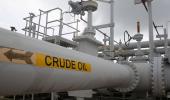Tata Motors is looking to increase passenger vehicle prices from next month in order to make its model range compliant with stricter emission norms which kick in from April 1 next year, according to a top company official.

In an interaction with PTI, Tata Motors Managing Director - Passenger Vehicle and Electric Vehicles Shailesh Chandra said the price revision would also offset the impact of commodity prices, which have remained high for the most part of the year.
"The regulatory change will have its impact on the cost. Even the real impact of softening of commodity prices is only going to come from next quarter and we still have the residual impact of the commodity escalation that we have seen during the year," Chandra said.
He noted that even the battery prices have gone up and the same has not been passed on to the market.
"So we are evaluating a price increase basis some of the residual effect that is left as far as the commodity prices are concerned.
"Battery prices and new regulations have also impacted the EV side," Chandra said.
Besides, there is a cost involved in making the model range transition to conform to new emission norms, he added.
"We are exploring potential price increase next month because of these factors for both ICE and EVs," Chandra said.
Tata Motors sells a range of models like Punch, Nexon, Harrier, and Safari in the domestic market.
It leads the electric vehicle segment with products like Tiago EV and Nexon EV.
From April 1, 2023, vehicles will need to have an on-board self-diagnostic device to monitor the real-time driving emission levels.
The device will constantly monitor key parts for meeting emission standards such as the catalytic converter and oxygen sensors, to keep a close watch on emissions.
In a scenario wherein the emissions exceed the parameters, the device will indicate through warning lights that the vehicle should be submitted for service.
Additionally, in order to control the level of fuel burnt, the vehicles will also carry programmed fuel injectors, which would control the timing and amount of fuel injected into the petrol engine.
Even the semiconductors used by the vehicle will have to be upgraded to monitor throttle, crankshaft positions, air intake pressure, the temperature of the engine, and the contents of the emissions from the exhaust (particulate matter, nitrogen oxide, CO2, Sulphur), etc.
Last week, Maruti Suzuki also announced to increase vehicle prices from January.











 © 2025 Rediff.com -
© 2025 Rediff.com -